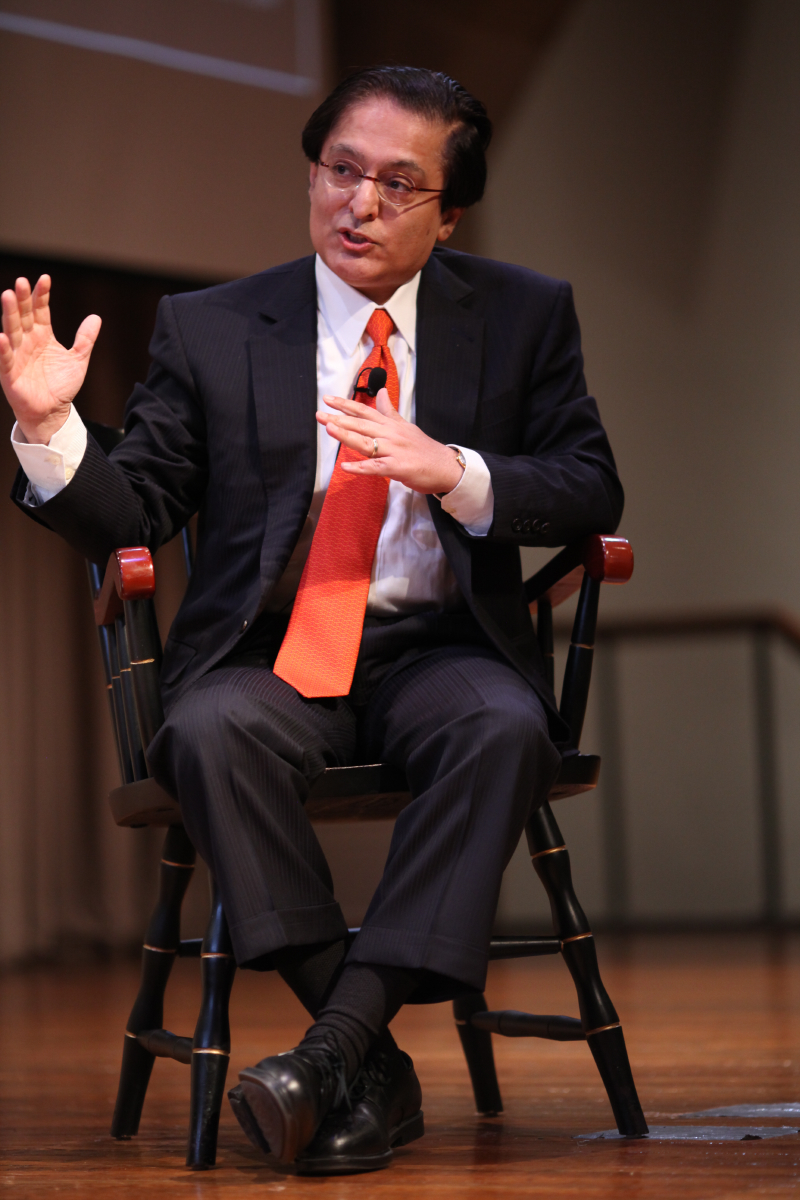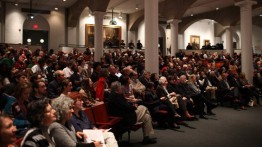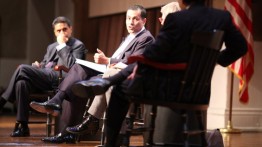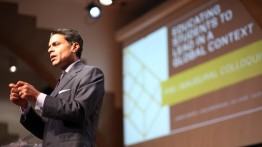Educating Students to Lead in a Global Context
POSTED ON: November 22, 2011
On October 17, 2011, The Cooper Union hosted Educating Students to Lead in a Global Context, a pre-inaugural colloquium preceding the investiture of President Jamshed Bharucha. The panel’s moderator, iQor CEO and Cooper Union Trustee Vikas Kapoor began the discussion by relating a personal business story. Kapoor had been successful in bringing international business talent into the United States for employment, but has struggled in transitioning American talent overseas. His anecdote raised the question he posed to the panelists: has the American designed technology that runs so much of today’s globalized business world opened up that world while leaving the United States behind?

Panelist Vali Nasr, a highly regarded expert on Muslim world issues and professor of international politics at Tufts University, followed Zakaria’s commentary and spoke of the isolationism of post-9/11 US policy. For the United States to be a player on the world stage, Nasr reflected, it would need to ensure more ready international access to its students just as international students would need more ready access to American academies. Cooper Union Professor Atina Grossmann reminded the panel that a public good like education must never be spelled out in terms only of cost, but rather social value, and challenged the panel to think critically about how American success or stagnation might be defined in a globalized world.
A video of the colloquium is available here.
Pictured right: Vikas Kapoor
n








